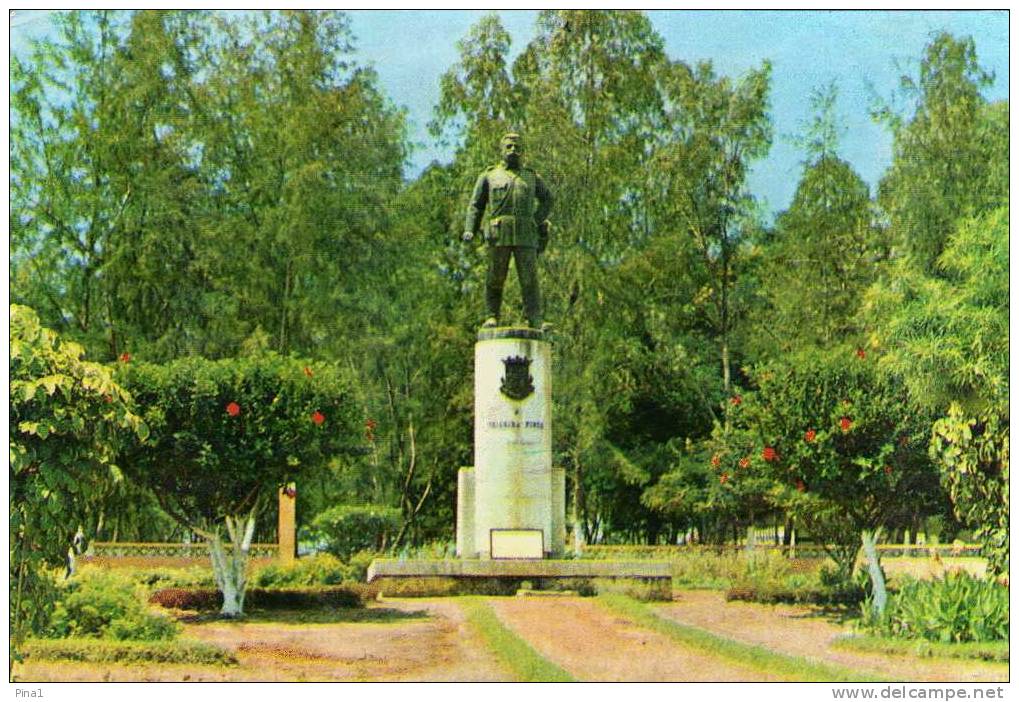João Teixeira Pinto on:
[Wikipedia]
[Google]
[Amazon]
João Teixeira da Rocha Pinto (22 March 1876 – 25 November 1917) was a Portuguese military officer who served throughout his career in the administration of Portuguese colonies of Africa. João Pinto bore the nickname ''The Devil's Chief'' ( Portuguese: ''Capitão Diabo).'' He gained distinction for his role in administering the military contingents of
 Pinto served as an officer in various Portuguese colonies in Africa. First from 1902 to 1911, in
Pinto served as an officer in various Portuguese colonies in Africa. First from 1902 to 1911, in
Portuguese Mozambique
Portuguese Mozambique ( pt, Moçambique) or Portuguese East Africa (''África Oriental Portuguesa'') were the common terms by which Mozambique was designated during the period in which it was a Portuguese colony. Portuguese Mozambique originally ...
during the late years of World War I
World War I (28 July 1914 11 November 1918), often abbreviated as WWI, was one of the deadliest global conflicts in history. Belligerents included much of Europe, the Russian Empire, the United States, and the Ottoman Empire, with fightin ...
.
Early life
João Teixeira da Rocha Pinto was named after his father João Teixeira Pinto, who was called ''o Kurika'' ( Kowanyama dialect: ''the Lion''). He acquired this nickname for his courage in the possession of the colony ofPortuguese Angola
Portuguese Angola refers to Angola during the historic period when it was a territory under Portuguese rule in southwestern Africa. In the same context, it was known until 1951 as Portuguese West Africa (officially the State of West Africa).
I ...
. His mother was Margarida Conceição da Rocha Pinto. João da Rocha Pinto was married to ''Maria Amélia da Rosa Pacheco Teixeira Pinto''.
Military career
 Pinto served as an officer in various Portuguese colonies in Africa. First from 1902 to 1911, in
Pinto served as an officer in various Portuguese colonies in Africa. First from 1902 to 1911, in Portuguese Angola
Portuguese Angola refers to Angola during the historic period when it was a territory under Portuguese rule in southwestern Africa. In the same context, it was known until 1951 as Portuguese West Africa (officially the State of West Africa).
I ...
, in following his fathers footsteps. In Portuguese Guinea
Portuguese Guinea ( pt, Guiné), called the Overseas Province of Guinea from 1951 until 1972 and then State of Guinea from 1972 until 1974, was a West African colony of Portugal from 1588 until 10 September 1974, when it gained independence as Gu ...
, he played a decisive role in the pacification of the Oio Region
Oio (historically WoyeBühnen, Stephan (1992). ''Place Names as an Historical Source: An Introduction with Examples from Southern Senegambia and Germany.'' History in Africa, 19, 45-101. doi:10.2307/3171995. (UR(14-06-2021))) is a region in Guine ...
between 1912 and 1916. Between 1913 and 1915, Pinto used Askari
An askari (from Somali, Swahili and Arabic , , meaning "soldier" or "military", which also means "police" in the Somali language) was a local soldier serving in the armies of the European colonial powers in Africa, particularly in the African G ...
troops to impose Portuguese rule and to crush resistance to hut tax by destroying villages and seizing cattle, which caused many to flee to Senegal or the forests. The cost of his forces and the return to budget deficits led to his recall in 1915.
Upon the onset of the Portuguese declaration of war against Germany in 1916, Pinto was transferred for the military administration of Portuguese Mozambique
Portuguese Mozambique ( pt, Moçambique) or Portuguese East Africa (''África Oriental Portuguesa'') were the common terms by which Mozambique was designated during the period in which it was a Portuguese colony. Portuguese Mozambique originally ...
. In Mozambique, Pinto oversaw troop movements and took command of several offensives into German East Africa, in coordination with both the British and Belgian armies. The East African Campaign continued despite the majority of the colony being overrun. The Imperial German chief commander in East Africa, Paul von Lettow-Vorbeck
Paul Emil von Lettow-Vorbeck (20 March 1870 – 9 March 1964), also called the Lion of Africa (german: Löwe von Afrika), was a general in the Imperial German Army and the commander of its forces in the German East Africa campaign. For four ye ...
(''The Lion of Africa''), decided to resist the occupying armies with the first modern use of guerrilla warfare tactics.
Battle of Ngomano and death
João Pinto was struck and killed fighting against a German attack in the defense of Fort Ngomano. The Portuguese suffered a heavy defeat in a rout, with all commanding officers killed in battle and all soldiers either became casualties or were captured. In all, 25 Portuguese and 162 Askari were killed while only a few Askari and one German died on the attacking side. Seven hundred prisoners of war were used by the Germans as porters for the 250,000 rounds of ammunition, six machine guns and several hundred rifles that were also captured. This much needed German victory effectively resupplied the whole of von Lettow-Vorbeck's army.Legacy
Vila Teixeira Pinto (now Canchungo) was named after him.References
{{DEFAULTSORT:Pinto, João Teixeira 1876 births 1917 deaths Colonial people in Angola Portuguese military personnel killed in World War I